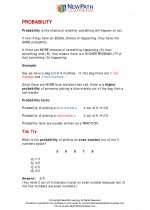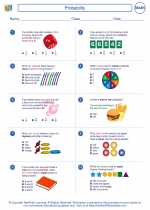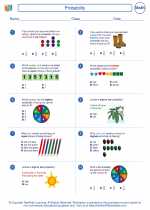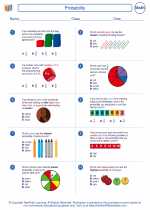Probability -> empirical probability
Empirical Probability
Empirical probability is based on observations obtained from probability experiments. It is the ratio of the number of favorable outcomes to the total number of possible outcomes in an experiment. Empirical probability is also known as experimental probability because it is based on actual observations or experiments.
Calculating Empirical Probability
To calculate empirical probability, use the following formula:
Empirical Probability = Number of Favorable Outcomes / Total Number of Possible Outcomes
For example, if you roll a fair six-sided die and you want to find the empirical probability of rolling a 3, you would count the number of times you roll a 3 and divide it by the total number of rolls.
Study Guide
Here are some key points to remember about empirical probability:
- Empirical probability is based on actual observations or experiments.
- It is calculated by dividing the number of favorable outcomes by the total number of possible outcomes.
- Empirical probability can change as more observations are made in an experiment.
- It is often used in real-world situations where theoretical probabilities are difficult to calculate.
Practice calculating empirical probability with different experiments and keep track of your observations to better understand this concept.
Remember to always verify your results with a large number of trials to ensure the empirical probability is a good estimate of the true probability.
[Empirical Probability] Related Worksheets and Study Guides:
.◂Math Worksheets and Study Guides Fourth Grade. Probability

 Worksheet/Answer key
Worksheet/Answer key
 Worksheet/Answer key
Worksheet/Answer key
 Worksheet/Answer key
Worksheet/Answer key
